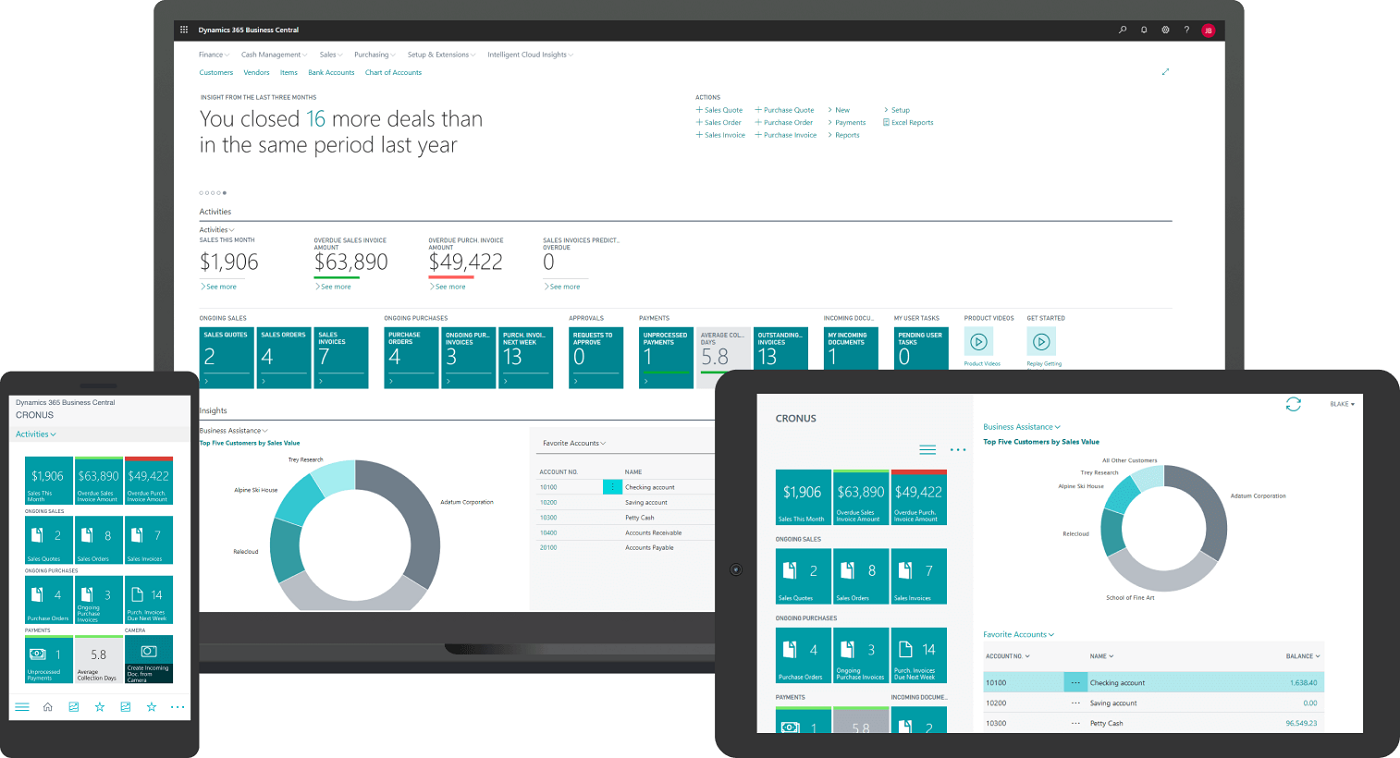No two companies are the same, not even those in the same sector. Size is important, but so is the composition of your teams, IT department, goals, preferences, etc. There are endless factors that differentiate companies from their competitors. When choosing an ERP (Enterprise Resource Planning) solution, you need a system that can be specifically tailored to the needs of each organization. Microsoft Business Central is one such solution.
While there are other ERP solutions on the market, the chosen system must meet the specific requirements of the business. When business management software fails to meet expectations, organizations can end up with a patchwork of solutions, patches, and expensive third-party customizations. A well-tuned ERP system can quickly turn into a real nightmare.
For manufacturers, the manufacturing industry is highly dynamic and competitive, necessitating an integrated solution that can improve efficiency, lower costs, and increase sales and profitability. An enterprise resource planning system like Dynamics 365 Business Central could be the solution to some or all of these requirements.
With Dynamics 365 Business Central for manufacturing companies can integrate, streamline, and manage all aspects of their processes, including planning, scheduling, inventory, distribution, and financial management. Microsoft ERP ensures that they can respond quickly to new and changing demands, having the ability to provide customers with what they need, when they want it. Manufacturers looking to increase performance and efficiency should take a closer look at Dynamics 365 Business Central.
If you’re considering Business Central for your manufacturing business, you may be wondering what features Microsoft ERP has to increase your benefits. This management software allows you to provide optimal manufacturing results with functionalities such as assembly management, standard cost calculation sheets, production bill of materials, capacity planning, etc. Let’s dive into these features:
Business Central Capabilities for Manufacturers:
Basic capacity planning:
Dynamics Business Central facilitates the manufacturing process by organizing routings for order scheduling and planning material requirements.
Machine Centers:
Microsoft ERP adds machine centers as capabilities in the manufacturing process. You can manage the capacity of each machine or production resource in a detailed way for the machine centers, and in a consolidated way for the work centers. In addition, it uses machine centers to store default information about manufacturing processes, such as setup times and scrap rates.
Standard cost worksheets:
Allow companies to reliably and efficiently control processes to maintain the proper cost of inventory. In this sense, working with the standard cost allows you to update the information in Business Central in the same way that you would in an Excel sheet.
Assembly management:
Specifies a list of items for sales, raw materials, subassemblies, and resources as an assembly bill of materials that make up an end item or kit. Use assembly orders to replenish assembly items. Record customer requirements for kit BOM directly from sales quotes, blanket orders, and order lines in assemble-to-order processes.
Production Bill of Materials:
Create bills of materials and calculate their standard costs.
Version management:
Create versions of manufacturing bills of materials and routings.
Finite charge:
Manages the finite load of resources with capacity constraints. Take into account the capacity restrictions for periods to avoid overloading the jobs. Calculate the production capacity (CTP).
Production orders (OP):
Create manufacturing orders and post consumption and production. Calculates net requirements based on production orders and uses a manual supply planning tool as an alternative to automatic planning. Get visibility and tools to manually plan sales line demand and create supply orders.
Analyze business data
Business intelligence is used by Dynamics 365 Business Central to assist end users in data analysis and reporting. In Microsoft ERP this works mainly with the help of dimensions. These dimensions in Business Central are custom attributes that can be assigned to a variety of different input records . Additionally, they can be grouped by similarities, such as region or product, and with reporting through account programs, Business Intelligence performs a variety of tasks including:
- Compare actual amounts with budgeted amounts
- Configuring analysis views using dimensions
- Create analysis reports for sales, purchases and inventory
- Set KPIs and analyze financial performance
Dynamics 365 Business Central is the best ERP for manufacturers. With Dynamics 365 Business Central, you’ll be in a unique position to take advantage of cloud-based technology. Likewise, you will be able to satisfy all the manufacturing needs and requirements of your company, connecting the ERP with powerful tools, software and apps in a single seamless management system . Shall we help you get it up and running?
Visit us – https://www.newsreadings.com/



